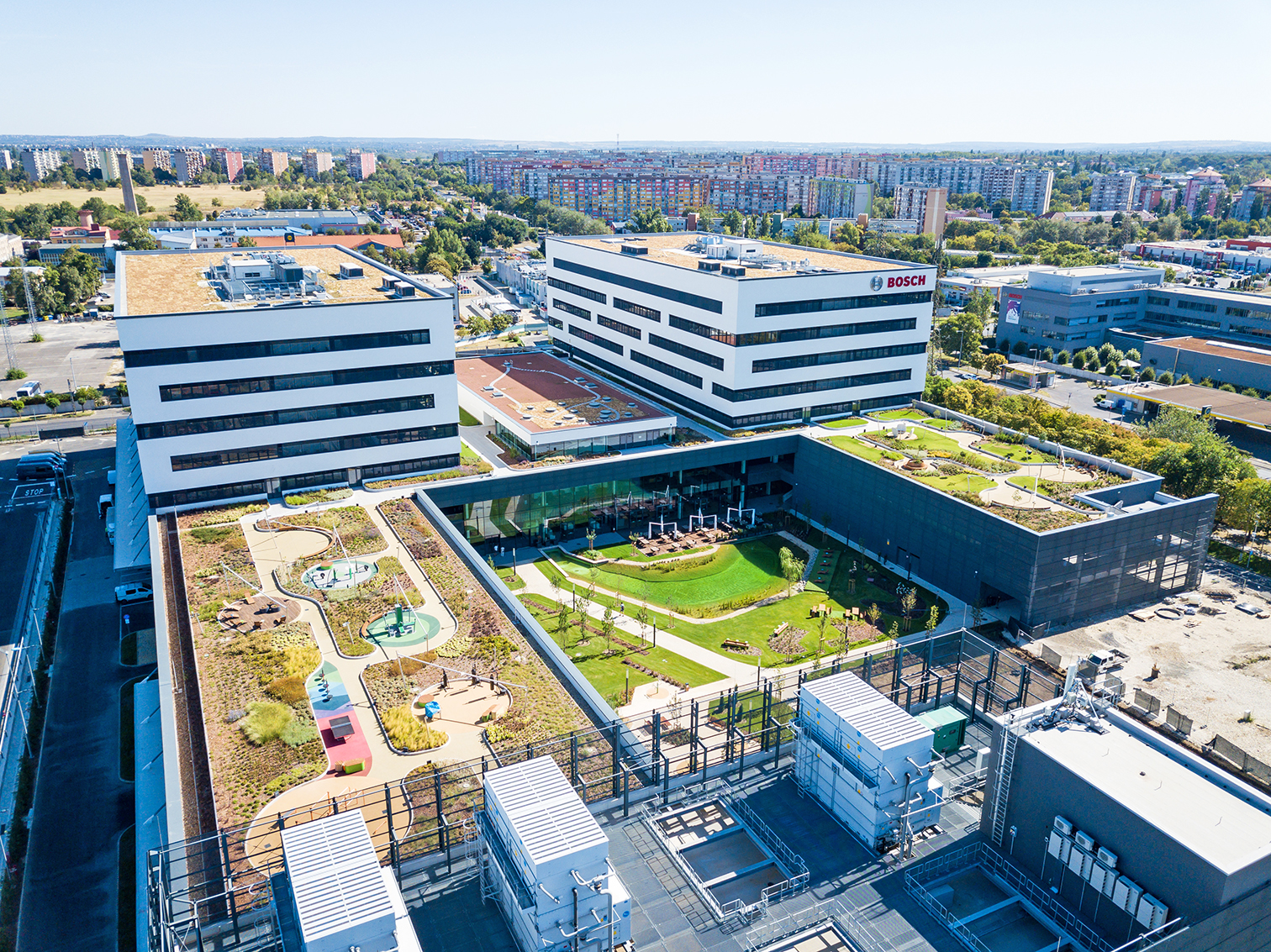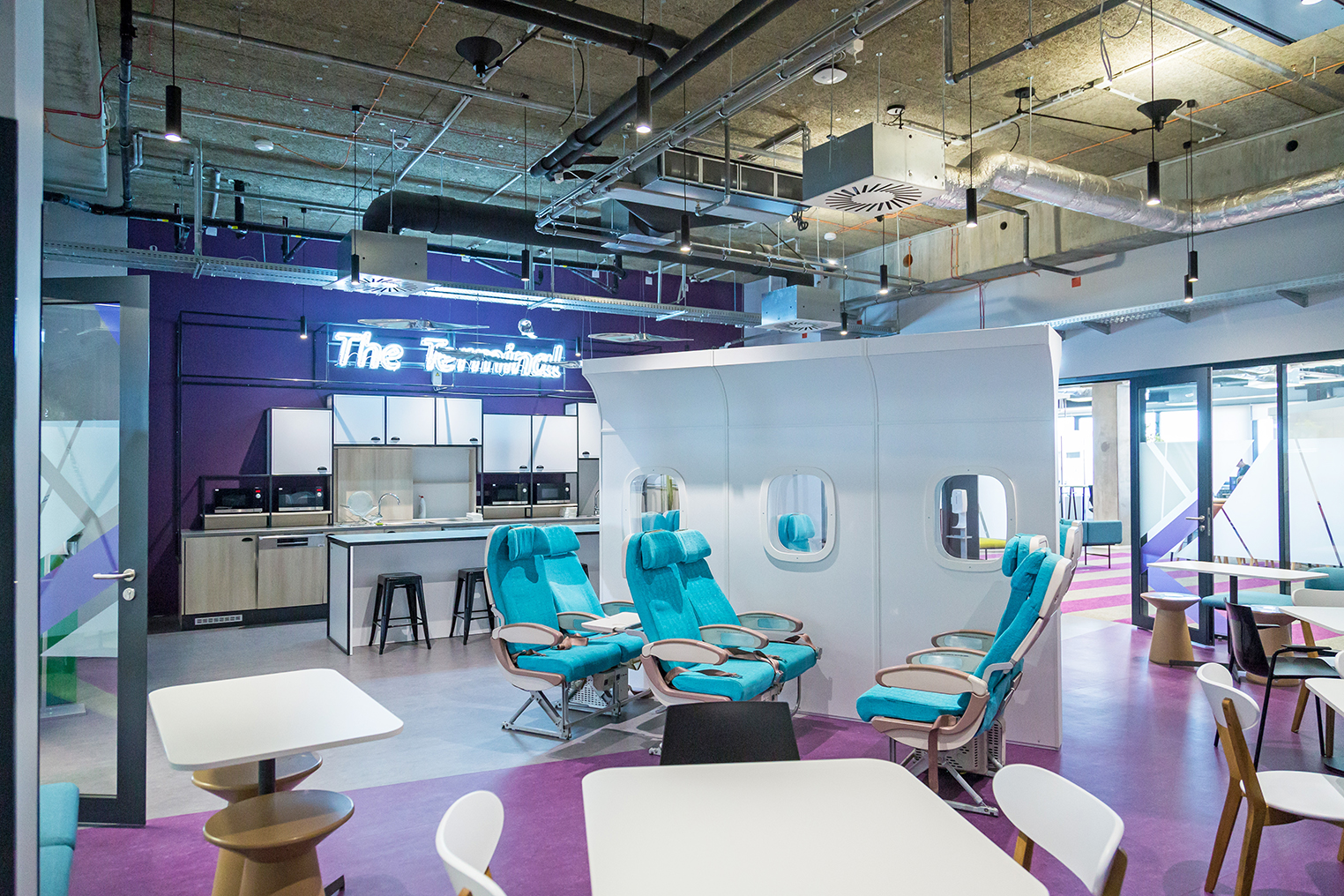Bosch Innovation Campus: Automotive Technology Development Center Inaugurated

Leading supplier of automotive technologies and services Bosch has inaugurated its Budapest Innovation Campus, a 90,000 sqm complex that will be the site of future automotive developments.
The campus, construction of which started in 2018, is an extension of the Budapest Development Center campus. The HUF 70 billion investment will further strengthen Hungary’s role in international innovation and industrial cooperation, as well as in global automotive development.
The inauguration of the world-class facility in Budapest was attended by Prime Minister Viktor Orbán, chairman of the management board of Robert Bosch GmbH Stefan Hartung, and István Szászi, head of the Bosch Group in Hungary and the Adriatic Region.
“For 136 years, the Bosch name has been synonymous with cutting-edge technology. The Bosch Budapest Innovation Campus demonstrates that Hungary, with its many talented and skilled engineers, is playing an increasingly important role in our global development and manufacturing network, creating technologies under the slogan ‘Designed for Life,’” Hartung said.
“In recent years, the Budapest Development Center has become one of Bosch’s flagships and an innovation leader in the international automotive industry.”
The Budapest Development Center is an increasingly important location for Bosch’s global development activities and one of Europe’s biggest in terms of staff numbers. Today, around 3,000 specialists (programmers, electrical engineers, mechanical engineers and physicists) are working to shape trends, including the future of mobility, on Gyömrői út.
The Bosch Budapest Innovation Campus will be home to 1,800 next-generation workplaces, 14,000 square meters of instrumented research and test laboratories, a unique outdoor test track and a high-tech giant test hall, all of which will serve the company’s wide-ranging technological developments.
“The new Bosch Budapest Innovation Campus plays a key role in developing our electromobility and automated driving solutions. The creation of the new campus was justified by the dynamic domestic growth and next-generation development projects of the Bosch Group,” said Szászi.

Unique Facilities
An essential part of the new campus is the 10,000-square-meter instrumented test track with unique facilities. Here, ultrasonic, radar- and camera-based driver assistance systems for future vehicles can be measured and fine-tuned under controlled conditions on various road surfaces and in different situations.
The enclosed test track has fuel and electric charging stations; a track lighting system has been installed to simulate twilight and night-time lighting conditions.
The development and testing of future passenger and commercial vehicles will occur using large scale yet precision measuring chambers. One of the special features of the Bosch Budapest Innovation Campus is a test hall that can accommodate several trucks simultaneously. Aerospace technology will ensure exact measurements for the fine sensors of the vehicles while completely filtering out ambient vibrations.
In Hungary, Bosch says it relies on the active involvement of industry and academia.
“The new campus also symbolizes a new approach, which my fellow leaders and I are committed to. We need to go beyond the walls and create a multi-stakeholder ecosystem with startups, universities, academic institutions, small- and medium-sized enterprises and government to be truly innovative,” Szászi explained.
In addition to joining the Hungarian Startup University Program (HSUP), the Bosch Group in Hungary is also actively deepening a startup mindset in-house, he said.
In the new complex, particular emphasis will be placed on sustainability and energy-efficient operation, which will be achieved through, among other things, excellent thermal insulation, building management solutions adapted to the environmental impact, automated lighting and shading systems, and heat recovery ventilation.
Renewable energy sources are used for the operation of the campus, with only certified green energy purchased, high-efficiency heat pump systems as the primary cooling and heating solution, complemented in the future by solar PV systems. The heat generated by the R&D site’s test systems will be reused for heating and hot water.
No Shortages
Welcoming the development, Prime Minister Orbán vowed there would be no energy shortages in Hungary, and no need to shut down factories.
“It is indeed a minor miracle that such a research and development center could be created,” the PM said. He saluted the Hungarian researchers, engineers and teachers, whose achievements have made it possible to expand the company’s research and development center.
“I have never experimented with natural sciences because of a lack of skills, but there is innovation in politics too,” Orbán said. The prime minister said that a Christian Democratic government is necessarily innovative and that Hungary’s government welcomes any technology that can move the country forward to its benefit.
He argued that Europe is running out of energy and that what we have must be brought in from elsewhere.
“What comes here is expensive, and we have to fight the fundamentalist greens and the bureaucrats to use different energy sources,” he added.
Bosch says the innovation campus is a vision of the workplace of the future, providing an inspiring and creative working environment. The design of the different functions aligns with the company’s new way of working concept.
Considering the latest HR trends and employee feedback, the architectural design emphasized creating community spaces that facilitate creative thinking and inspiration, the company says. In addition to the essential functions, the main building will also include a 500-seat auditorium equipped with state-of-the-art conference technology, which will host professional, business and artistic events.
Meeting rooms are equipped with state-of-the-art technology for professional online meetings. Work and relexation are catered for with a roof garden community space. The campus buildings are surrounded by a green park with walkways, ponds and resting islands.
This article was first published in the Budapest Business Journal print issue of September 23, 2022.
SUPPORT THE BUDAPEST BUSINESS JOURNAL
Producing journalism that is worthy of the name is a costly business. For 27 years, the publishers, editors and reporters of the Budapest Business Journal have striven to bring you business news that works, information that you can trust, that is factual, accurate and presented without fear or favor.
Newspaper organizations across the globe have struggled to find a business model that allows them to continue to excel, without compromising their ability to perform. Most recently, some have experimented with the idea of involving their most important stakeholders, their readers.
We would like to offer that same opportunity to our readers. We would like to invite you to help us deliver the quality business journalism you require. Hit our Support the BBJ button and you can choose the how much and how often you send us your contributions.









